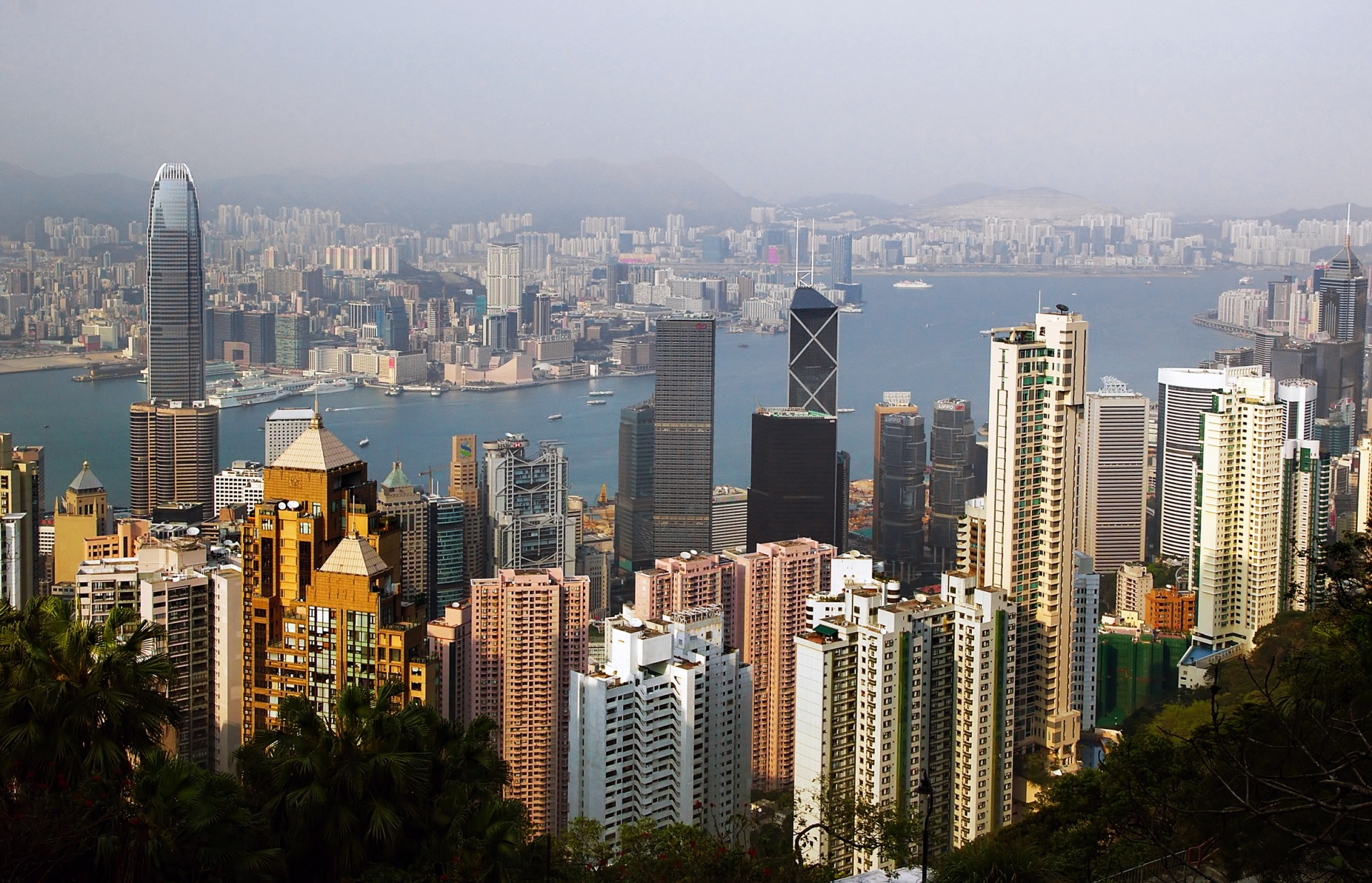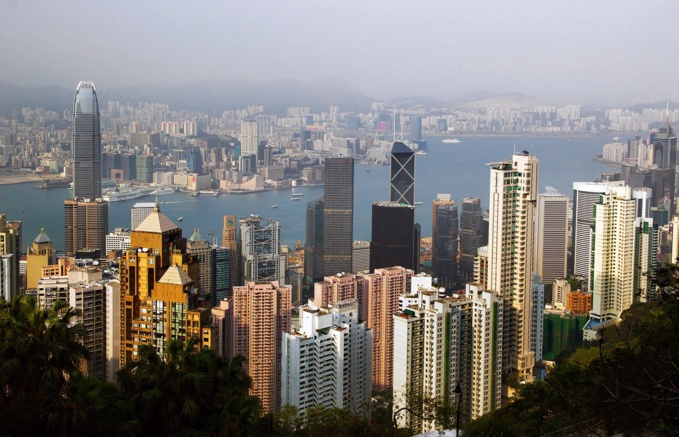This rating is annually compiled on the basis of calculations in ten main categories. It takes into account the degree of economic and trade freedoms, investment openness, state intervention in the economy, the factor of corruption, and so on. Below are 10 countries with the highest level of economic freedom.
10. United Arab Emirates
Index: 77.6
The UAE economy is based on re-export, trade, extraction and export of crude oil and gas. Oil production amounts to approximately 2.2 million barrels per day; most of oil is extracted in the emirate of Abu Dhabi. Other important oil producers are Dubai, Sharjah and Ras al-Khaimah. Oil provided a rapid growth of the UAE economy in just a few decades, but other sectors of the economy also developed quite quickly, especially foreign trade.
9. Canada
Index: 77.7
Canada is one of the richest countries in the world with high per capita income. The state is a member of the Organization for Economic Cooperation and Development (OECD) and the G-7. Canada is one of the world's largest suppliers of agricultural products.
8. Great Britain
Index: 78.0
The British services sector is the main sector of the country's economy, which accounts for about 75% of GDP. London, one of the three "control centers" of the global economy (along with New York and Tokyo) is the largest financial hub.
7. Estonia
Index: 78.8
The advantages of the Estonian economy include the system of electronic regulation of relations between economic entities and the state, a simplified legal system in the sphere of small and medium business, as well as one of the lowest indicators of corruption in the world.
6. Ireland
Index: 80.4
The Republic of Ireland is a modern, relatively small, trade-dependent economy. The agricultural sector, which once played a dominant role in the system, is currently being replaced by the industrial sector. The latter accounts for 46% of GDP, about 80% of exports, and 29% of the labor force. While Ireland remains the main driver of Ireland's economic increased consumer spending and restoration of both construction and business investment also facilitate growth of the economy.
5. Australia
Index: 80.9
Australia is one of the few capitalist countries that have most fully implemented the principle of laissez-faire in the management of the economy, according to the index of economic freedom of the world. Australia's gross domestic product per capita is slightly higher than in the UK, Germany and France at purchasing power parity.
4. Switzerland
Index: 81.7
The Swiss economy is one of the most stable in the world. The average income level of the population is much higher than the average. The long-term monetary policy and banking secrecy policy made Switzerland a place where investors are most confident in the security of their funds. As a result of this, the country's economy becomes increasingly dependent on constant inflows of foreign investment. Due to the country's small territory and high specialization of labor, the key economic resources for Switzerland are industry and trade. Switzerland is the world leader in the purification of gold, processing two-thirds of its world production.
3. New Zealand
Index: 84.2
New Zealand is a developed country with a market economy system, which is based on agriculture, processing and food industry and tourism. The country's economy has an export orientation. The main trading partners are Australia, USA, Japan, China.
2. Singapore
Index: 88.8
Singapore is a highly developed country with a market economy and low taxation, in which transnational corporations play an important role. Gross national product per capita is one of the highest in the world. Singapore is attractive for investors because of low tax rates. In total, Singapore has five taxes, of which one is income tax, and one is a wage tax. The total tax rate is 27.1%.
1. Hong Kong
Index: 90.2
Hong Kong is a special administrative region of the People's Republic of China, one of the leading financial centers of Asia and the world. According to the joint Sino-British declaration and the Basic Law of Hong Kong, the territory is granted wide autonomy until 2047, that is, within 50 years after the transfer of sovereignty. During this period, the Central People's Government of the People's Republic of China takes over the defence and foreign policy of the territory, while Hong Kong retains control over legislation, police, monetary system, duties and immigration policies, and retains representation in international organizations and events.
source: heritage.org
10. United Arab Emirates
Index: 77.6
The UAE economy is based on re-export, trade, extraction and export of crude oil and gas. Oil production amounts to approximately 2.2 million barrels per day; most of oil is extracted in the emirate of Abu Dhabi. Other important oil producers are Dubai, Sharjah and Ras al-Khaimah. Oil provided a rapid growth of the UAE economy in just a few decades, but other sectors of the economy also developed quite quickly, especially foreign trade.
9. Canada
Index: 77.7
Canada is one of the richest countries in the world with high per capita income. The state is a member of the Organization for Economic Cooperation and Development (OECD) and the G-7. Canada is one of the world's largest suppliers of agricultural products.
8. Great Britain
Index: 78.0
The British services sector is the main sector of the country's economy, which accounts for about 75% of GDP. London, one of the three "control centers" of the global economy (along with New York and Tokyo) is the largest financial hub.
7. Estonia
Index: 78.8
The advantages of the Estonian economy include the system of electronic regulation of relations between economic entities and the state, a simplified legal system in the sphere of small and medium business, as well as one of the lowest indicators of corruption in the world.
6. Ireland
Index: 80.4
The Republic of Ireland is a modern, relatively small, trade-dependent economy. The agricultural sector, which once played a dominant role in the system, is currently being replaced by the industrial sector. The latter accounts for 46% of GDP, about 80% of exports, and 29% of the labor force. While Ireland remains the main driver of Ireland's economic increased consumer spending and restoration of both construction and business investment also facilitate growth of the economy.
5. Australia
Index: 80.9
Australia is one of the few capitalist countries that have most fully implemented the principle of laissez-faire in the management of the economy, according to the index of economic freedom of the world. Australia's gross domestic product per capita is slightly higher than in the UK, Germany and France at purchasing power parity.
4. Switzerland
Index: 81.7
The Swiss economy is one of the most stable in the world. The average income level of the population is much higher than the average. The long-term monetary policy and banking secrecy policy made Switzerland a place where investors are most confident in the security of their funds. As a result of this, the country's economy becomes increasingly dependent on constant inflows of foreign investment. Due to the country's small territory and high specialization of labor, the key economic resources for Switzerland are industry and trade. Switzerland is the world leader in the purification of gold, processing two-thirds of its world production.
3. New Zealand
Index: 84.2
New Zealand is a developed country with a market economy system, which is based on agriculture, processing and food industry and tourism. The country's economy has an export orientation. The main trading partners are Australia, USA, Japan, China.
2. Singapore
Index: 88.8
Singapore is a highly developed country with a market economy and low taxation, in which transnational corporations play an important role. Gross national product per capita is one of the highest in the world. Singapore is attractive for investors because of low tax rates. In total, Singapore has five taxes, of which one is income tax, and one is a wage tax. The total tax rate is 27.1%.
1. Hong Kong
Index: 90.2
Hong Kong is a special administrative region of the People's Republic of China, one of the leading financial centers of Asia and the world. According to the joint Sino-British declaration and the Basic Law of Hong Kong, the territory is granted wide autonomy until 2047, that is, within 50 years after the transfer of sovereignty. During this period, the Central People's Government of the People's Republic of China takes over the defence and foreign policy of the territory, while Hong Kong retains control over legislation, police, monetary system, duties and immigration policies, and retains representation in international organizations and events.
source: heritage.org



















